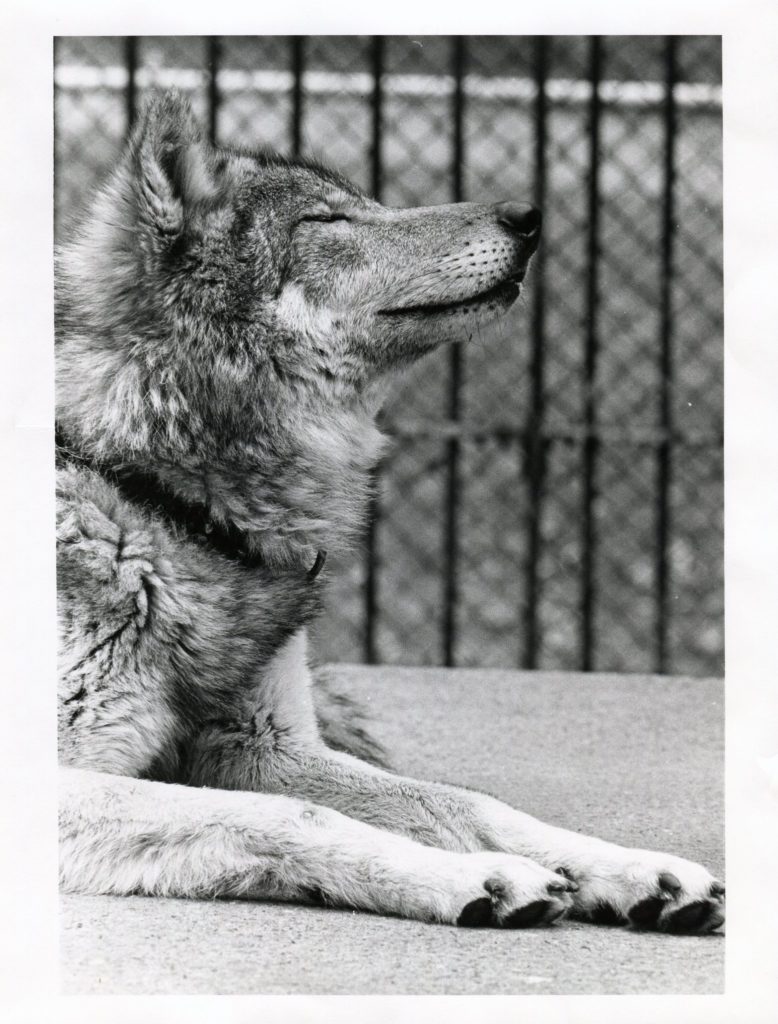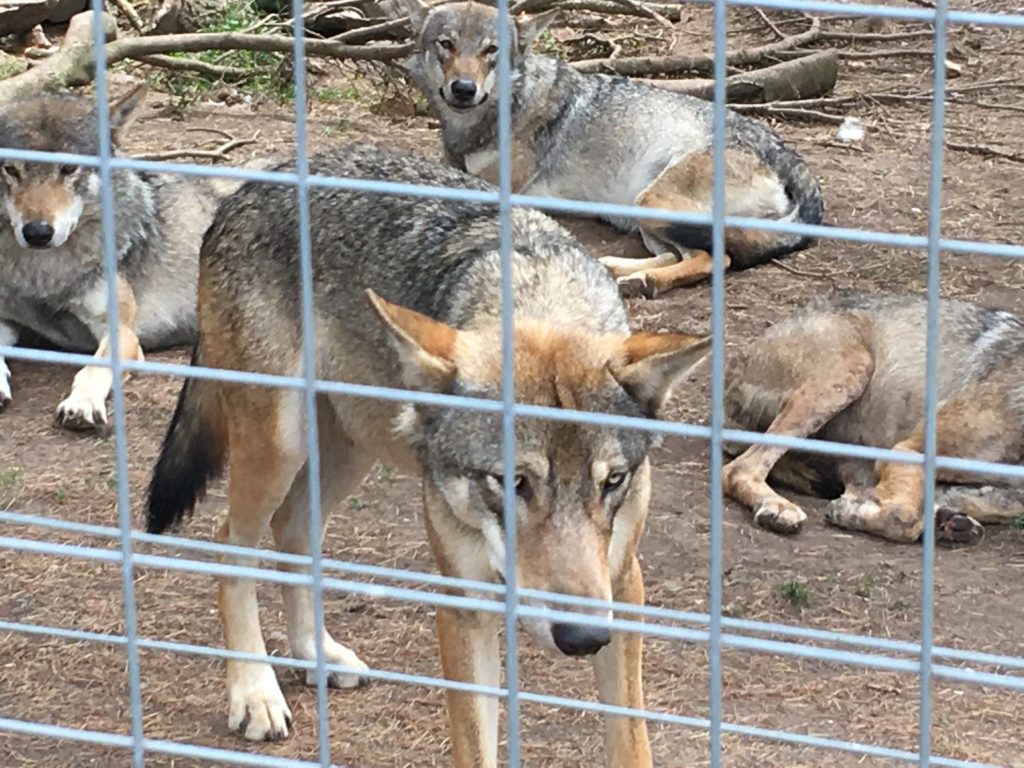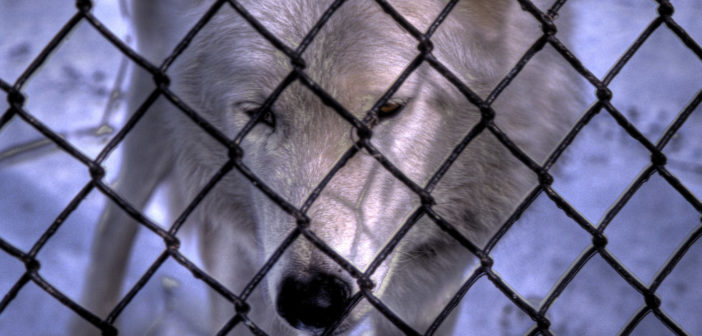Fur-Ever Wild, a roadside zoo in Minnesota, breeds and exhibits threatened gray wolves and other animals. Fur-Ever Wild’s customers can pay for “pet n’ play” sessions where they are allowed to handle young gray wolf puppies.
But when the pups get too old to be handled by visitors anymore, the facility has admitted to pelting them — and sells their skin, skulls, teeth, bones, and other body parts in the gift shop or to taxidermists. The Animal Legal Defense Fund obtained a temporary restraining order against Fur-Ever Wild last year, but now we need to stop the killing permanently by moving the wolves to a sanctuary.

A captive wolf. Image credit Mary Bloom, CC BY-SA 3.0.
No animal should be born to die. If you agree, please take a moment to sign our petition to the owner of Fur-Ever Wild, demanding that the facility stop this slaughter.
In killing these animals, Fur-Ever Wild shows contempt not only for the lives of these animals, but also the law. The Endangered Species Act (ESA) prohibits harming or killing protected species such as gray wolves, but Fur-Ever Wild has admitted to killing wolves for their pelts in the past and our evidence shows that this practice will continue without a permanent court order.
The Animal Legal Defense Fund and the Lockwood Animal Rescue Center filed a lawsuit against Fur-Ever Wild in federal court in 2017. The lawsuit argues that Fur-Ever Wild’s killing of federally-protected gray wolves violates the federal Endangered Species Act (ESA), as did the facility’s failure to properly care for the animals while they were alive.
The suit asked the U.S. District Court for the District of Minnesota to enjoin Fur-Ever Wild from killing gray wolves, and to order the facility to surrender its wolves to a bona fide sanctuary.
In 2018, Fur-Ever Wild agreed to the entry of a temporary restraining order not to kill animals with any gray wolf lineage while the suit proceeds, except for purposes of verified humane euthanasia. This important agreement came on the heels of another state court order prohibiting Fur-Ever Wild from owning more than one wolf at a time.

Wolves in captivity. Image credit fife flickr, CC BY-SA 3.0.
The court ruled against Fur-Ever Wild on a motion for summary judgement on June 13, 2019, finding that the Endangered Species Act does apply to at least some wolves with dog genes. The court found that the wolves at issue in this case are predominately wolf with small amounts of detectable dog genes, and did not preclude the possibility that Endangered Species Act protection could extend to wolves with more recent dog ancestors in other cases. The court also found that the Animal Legal Defense Fund and Lockwood Animal Rescue Center have standing to sue. The lawsuit will now go forward to a trial to determine if Fur-Ever Wild violated the Endangered Species Act.
Add your voice to our demand that Fur-Ever Wild stop the killing and send its wolves and pups to a sanctuary where they can get the care they deserve.
Featured image: an arctic wolf behind a fence in a zoo. Image credit Chris Seward, CC BY-SA 3.0.






1 Comment
It’s astonishing that Fur-Ever Wild would claim endangered species protections don’t apply since the wolves are part dog, and therefore can be killed and skinned for profit, when such treatment would be illegal under animal cruelty laws if they were fully dog. It seems their hybrid status places them in a legal no-man’s-land, without clear protections under the laws applicable to either parent species.